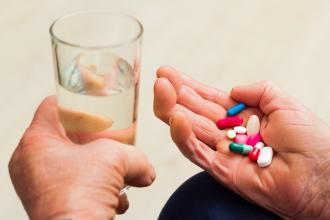Ephedrine: FDA and Health Canada
Last year, CTV News reported, “Health Canada says an unauthorized health product called West Pharm Therma Lean Fat Burma Engergizer has been found on the Canadian market that contains both ephedrine and caffeine, which could cause serious adverse effects and even death when combined.”[1] It was sold on the Internet. Health Canada advised the company to stop selling and advertising the product, and the company has closed down its website.
Eight years earlier, I reported this same dietary supplement sold in local health food stores in spite of a warning from Health Canada in the American Academy of Allergy, Asthma and Immunology 58th Annual Meeting, New York, NY, on 3 March 2002.[2]
In 1997, the US Food and Drug Administration (FDA) proposed some restrictions in the sale of ephedrine alkaloids in dietary supplements. Health Canada issued ephedra/ephedrine product warnings in the same year. Adverse cardiovascular and central nervous system events associated with dietary supplements containing ephedra alkaloids were reported in 2000.[3]
Ephedra was reported to be 100 to 700 times more likely to cause a significant reaction than other commonly used supplements such as Kava or Ginkgo biloba.[4]
The US Food and Drug Administration is restricted by the Dietary Supplements Health and Education Act of 1994. Ephedrine/ephedrine alkaloid is the first dietary supplement/complementary and alternative medicine that the US FDA was able to ban the sale of because of the serious adverse effects.[5] A legal challenge was launched by a supplement manufacturer against the ban. Finally in 2007, the US Supreme Court declined to hear the appeal from the manufacturer.
Unlike the US FDA, Health Canada does not have an act to regulate dietary supplements, and issued only a partial ban on the sale of ephedrine-containing products.[6]
In recent visits to local Chinese herbal shops, I was surprised to find for sale a complementary and alternative medicine, Madam Pearl’s Cough Syrup DM, with ingredients containing ephedrine HCl 7.5 mg per 30 mL, as well as three other pharmaceutical products with Health Canada drug identification numbers. The cough syrup in question falls within Health Canada restriction.
Life-threatening adverse reactions have been reported to occur with doses of 1 to 5 mg.[7] There are multiple products of ephedrine currently available for sale on the Internet, including one directly from Canada.
Health Canada should consider changing the partial ban on ephedrine-containing dietary supplements to a complete ban for the health of Canadians.
—H.C. George Wong, MD
Vancouver
References
1. Health Canada issues ephedrine product warning. CTV News [Internet]. 1 April 2010. Accessed 23 April 2011]. www.ctv.ca/CTVNews/TopStories/20100401/product_ns_100401/.
2. Wong HCG. Potential adverse reactions from the use of complementary and alternative medicine and other dietary supplements with warning from Canada and U.S. health authorities. J Allergy Clin Immunol 2002;109:S153
3. Hall CA, Benowitz NL. Adverse cardiovascular and central nervous system events associated with dietary supplements containing ephedra alkaloids. N Engl J Med 2000;343:1835-1838.
4. Bent S, Tiedt TN, Odden MC, et al. The relative safety of ephedra compared with other herbal products. Ann Intern Med 2003;138:468-471.
5. Ephedra. Wikipedia. Accessed 23 April 2011. http://en.wikipedia.org/wiki/Ephedra.
6. Health Canada. Natural Health Products Directorate. Natural health products compliance guide. Ottawa, ON: 2007 Report No.: 0-662-4403-5.
7. Cupp MJ. Herbal remedies: Adverse effects and drug interactions. Am Fam Phys 1999;59:1239-1244.

